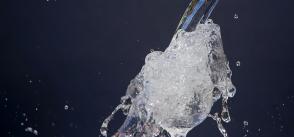
Water and Gender: gender analysis in water programmes
Gender-sensitive indicators are essential means to understand the roles, the needs and the responsibilities of men and women and they would be useful to form targeted actions in water programmes and to avoid negative consequences of these interventions.
The FAO Policy on Gender Equality states as the first Minimum Standard that "All major FAO statistical databases incorporate sex-disaggregated data where relevant and available. In the short-term, this will involve mining data from existing sources, particularly household surveys, for sex-disaggregated statistics; in the longer term, efforts will be made to collect and disseminate additional sex-disaggregated data".
AQUASTAT, as one of the main FAO statistical databases, therefore wishes to improve the availability of sex- and age- disaggregated data relative to agricultural water management at country-level. Since 2015 AQUASTAT consistently adds a section on "Women and irrigation" when updating country profiles, which can be accessed through the drop-down menu below. Even though the information provided is still mainly qualitative, consistently adding such section in the country profiles might improve the understanding of and raise awareness about the importance of sex-disaggregated data. While unfortunately so far, sex-disaggregated data related to agricultural water management is rare and in general not available at national level, AQUASTAT aims to build upon the information that already exists in its documentation to further develop some gender-related key variables to be included in its database.
Gender analysis is needed to mainstream gender issues in water programmes. It is a methodology that requires the collection and dispensation of relevant information on gender issues. A gender analysis therefore calls for a variety of sex- and age-disaggregated data and an understanding of socio-economic and cultural dynamics. And so, there is a necessity to produce, analyze and make use of sex- and age-disaggregated data in water statistics. Gender-sensitive indicators relative to water management practices in general and agricultural water management practices in particular, are needed for thorough planning, implementation, monitoring and evaluation of coherent, effective and sustainable policies, programmes and projects.
[Full article here | Photo by John Twohig]







